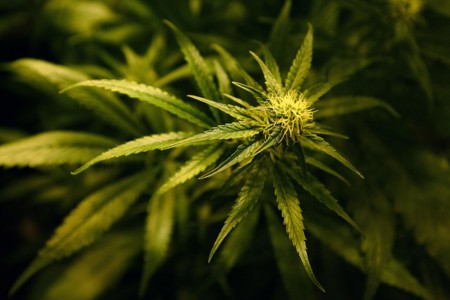“Cannabinoids, the active components of Cannabis sativa, have been shown to exert antiproliferative and proapoptotic effects on a wide spectrum of tumor cells and tissues.
Of interest, cannabinoids have displayed great potency in reducing the growth of glioma tumors, one of the most aggressive CNS tumors, either in vitro or in animal experimental models curbing the growth of xenografts generated by subcutaneous or intrathecal injection of glioma cells in immune-deficient mice.
Cannabinoids appear to be selective antitumoral agents as they kill glioma cells without affecting the viability of non-transformed cells.
This review will summarize the anti-cancer properties that cannabinoids exert on gliomas and discuss their potential action mechanisms that appear complex, involving modulation of multiple key cell signaling pathways and induction of oxidative stress in glioma cells.” http://www.ncbi.nlm.nih.gov/pubmed/24281104
“The therapy of gliomas, the most frequent class of malignant primary brain tumors and one of the most aggressive forms of cancer characterized by high invasiveness, a high proliferation rate and rich neovascularization, could benefit from the use of cannabinoids, the active compounds of Cannabis sativa, and their synthetic derivatives. They have been shown to mimic the endogenous substances named “endocannabinoids” that activate specific cannabinoid receptors (CB1 and CB2).
Cannabinoids have been proven to inhibit glioma tumor growth in either in vitro or in vivo models through several cellular pathways such as elevating ceramide levels, modulating PI3K/Akt, MAPK kinases, inducing autophagy and oxidative stress state in glioma cells, thus arresting cell proliferation and inducing apoptosis. Since cannabinoids kill tumor cells without toxicity on their non transformed counterparts, probably modulating the cell survival/cell death pathways differently, they can represent a class of new potential anticancer drugs.” http://www.ncbi.nlm.nih.gov/pmc/articles/PMC3835116/



1942-7611/asset/olalertbanner.jpg?v=1&s=4b27d6a6bed6b58a9935efe70e4f95efc39146bd)
